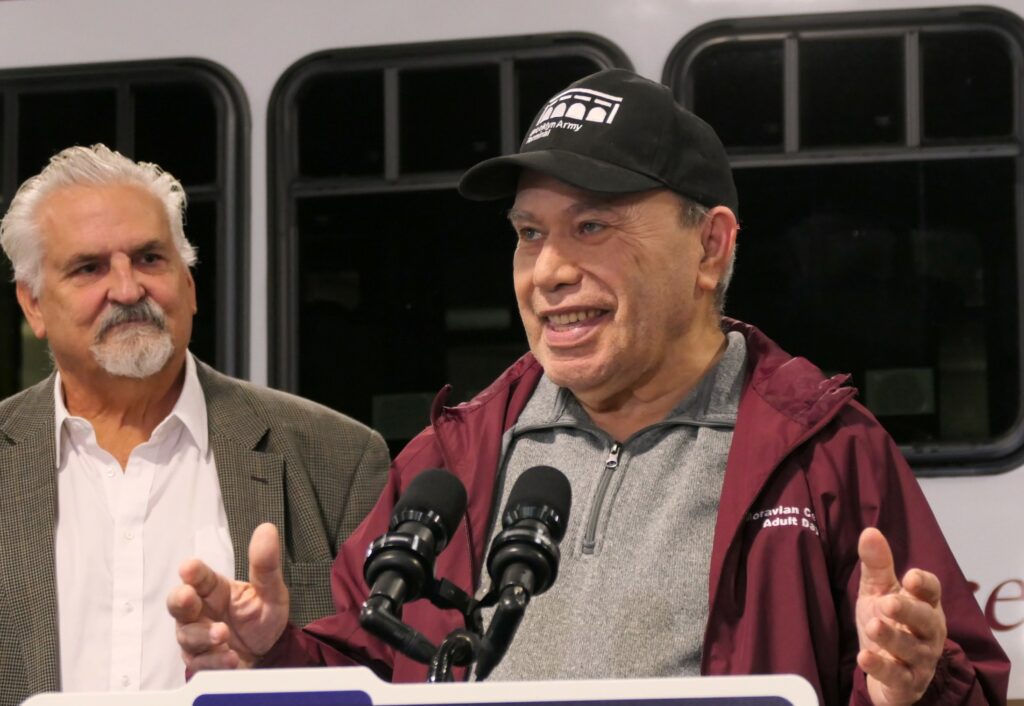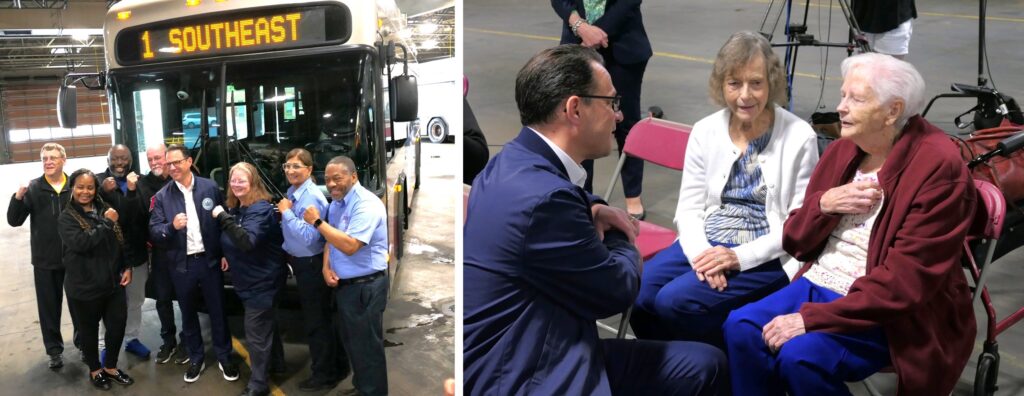Gov. Josh Shapiro visited the Red Rose Transit Authority in Lancaster on Wednesday to push for the mass transit funding increases proposed in his 2024-25 budget.
Public transit benefits all Pennsylvanians, whether they use it or not, the governor said. It reduces traffic, which eases air pollution. It conveys employees to their jobs and shoppers to storefront retailers. Overall, $1 invested in mass transit yields $5 in economic activity, he said.
For those who can’t drive, or can’t afford to, it’s a lifeline. “Public transit provides real freedom and opportunity for its riders, especially our seniors, and that’s why we need to fund it,” Shapiro said.
Shapiro’s budget calls for increasing mass transit funding by 1.75%, or $283 million, in 2024-25, and by $1.5 billion over five years. The money would go to Pennsylvania’s 32 public transit systems, the first major increase in funding in nearly a decade.

The governor was accompanied Wednesday by state Transportation Secretary Mike Carroll, who made roughly the same case for mass transit funding last month at the Pennsylvania Public Transit Association’s conference at the Lancaster County Convention Center.
Flanking them were fellow Democrats Mike Sturla and Ismail Smith-Wade-El, whose districts encompass Lancaster city; and county Commissioner Alice Yoder.
The bulk of the proposed funding, $200 million, would go to SEPTA in Philadelphia ($161 million) and Pittsburgh Regional Transit ($39 million), which serve the vast majority of the state’s transit riders.
Some $5.6 million would go to the South Central Transit Authority, which oversees Red Rose Transit in Lancaster County and Berks Area Regional Transit in Berks County. It would be a big boost, Executive Director Gregory Downing said.
The money would support the route changes and expansions the authority is developing, he said, as well as its plans to build a hub for Red Rose Access, its shared-ride service.
Shared-ride or paratransit services offer door-to-door transportation for seniors and individuals with disabilities. Unlike bus services, which generally don’t serve in rural areas, shared-ride services are active in all 67 counties. Under the governor’s proposal, they would receive an additional $32 million.

Transit serves riders in all communities, whether urban, suburban or rural, Sturla said. For seniors, it can mean the difference between making a doctor’s appointment or missing it; in rural counties, paratransit may provide the only access to a supermarket that’s 10 or 20 miles away.
Asked about Senate Republicans’ recent package of a $3 billion income tax cut, Shapiro described it as “a step forward,” saying it shows that they acknowledge Pennsylvania’s $14 billion surplus.
His own budget proposes expanding spending by roughly 7%, or $3 billion, much of it on education, shrinking the surplus to $11 billion. He and legislative leaders have been engaging in “constructive dialog,” he said.
With a Republican Senate and a Democratic House and governor, the only way forward is compromise, Shapiro said. “And that’s good,” he added, contending the result will be a budget that is common-sense, thoughtful and bipartisan.






